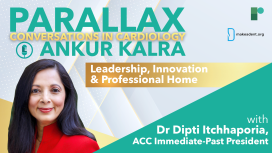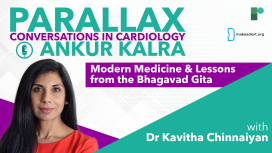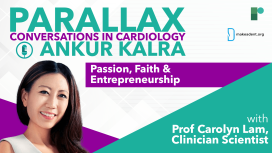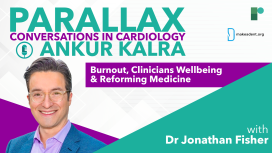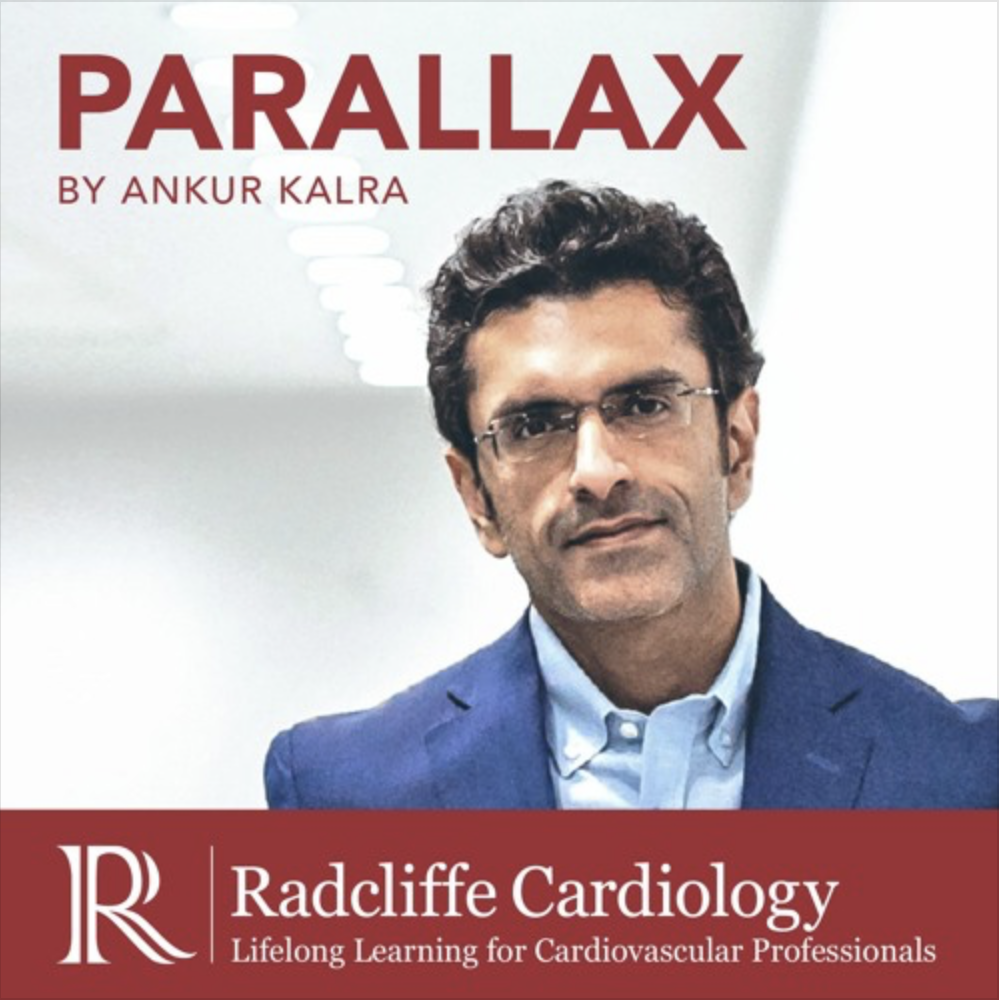
In the early days of the Black Lives Matter movement, a group of internal medicine residents posed a question: What can we do about racial disparity within our institution?
Brigham and Women’s Hospital’s Health Equity Committee decided to confront the status quo by asking: How is racism on a structural level present within our walls?Ankur Kalra’s guests Michelle Morse (Founding Co-Director of EqualHealth and Assistant Professor at Harvard Medical School) and Lauren Eberly (Cardiology Fellow at University of Pennsylvania) are co-authors of a retrospective study that demonstrated what had previously only been observed: That black or brown heart failure patients ended up in general medicine rather than specialised cardiology services. Following publication of the study in November 2019, the Health Equity Committee started to roll out anti-racism trainings and to work on objective admission guidelines to mitigate biased behaviours.
Aarti Bhatt (Assistant Professor of Medicine at University of Minnesota), member of the Minnesota chapter of Campaign Against Racism, talks about their initiative to support projects that have positive impact on local communities on a global scale.
Tune in to hear more about how you can be part of the Campaign Against Racism.
Related Content
ajph.aphapublications.org/doi/pdf/10.2…PH.90.8.1212
www.ahajournals.org/doi/10.1161/CIR…LURE.119.006214
Questions and comments can be sent to “podcast@radciffe-group.com” and may be answered by Ankur in the next episode. Guests Michelle Morse, Aarti Bhatt & Lauren Eberly, hosted by @AnkurKalraMD. Produced by @RadcliffeCARDIO.

Dr Kalra asks Dr Mauri about early influences and her traineeship with legendary interventionalists, the late Donald Baim and Richard Kuntz. Dr Mauri talks openly about her decision-making process and the importance of selecting your priorities and committing to them. Ankur asks Laura about her decision to go into industry. Laura shares her thoughts on medical innovations and meeting urgent needs with unique perspectives.
What is Dr Mauri’s advice for a young cardiologist? How did she balance research and patient care? What are the questions that helped her decision making? How does Dr Mauri think about innovations in medicine?
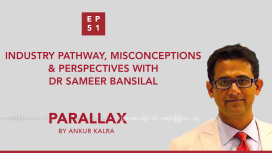
Dr. Bansilal was an Assistant Professor of Medicine at the Icahn School of Medicine at Mount Sinai when he decided to seek an alternative pathway to make an impact on patients’ lives.
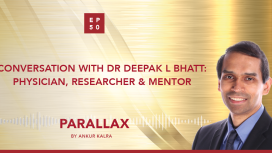
In the 50th episode of Parallax, Dr. Ankur Kalra’s guest is Dr. Deepak L. Bhatt leading physician, researcher, lecturer, and educator who has authored or co-authored over 1650 publications and was recipient of the ACC’s Distinguished Mentor Award in 2018 and AHA’s Distinguished Scientist Award in 2019.
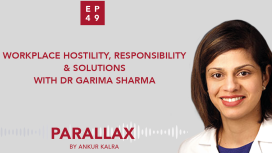
The American College of Cardiology surveyed cardiologists across the globe to have a more detailed understanding on the impact of hostility, discrimination, and harassment in the workplace. Of almost 6000 cardiologists who took part in the survey 44% reported hostile work environment.
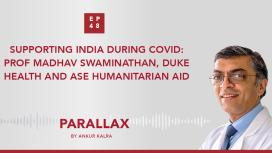
In this week's latest podcast episode, host, Ankur Kalra, MD, meets guest Prof Madhav Swaminathan (Duke University Health System, NC, US) to discuss how he has orchestrated a major humanitarian effort, in association with Duke University Health and The American Society of Echocardiography, to supply ventilation equipment and PPE to hospitals and NGOs during the current COVID-19 crisis in New Delhi, India.
Hear them discuss the challenges and learnings associated with the supply chain, inventory, logistics and cost to deliver this humanitarian effort; which most recently resulted in $140,000 of life-changing equipment being delivered to four key hospitals in New Delhi. A most inspirational episode.
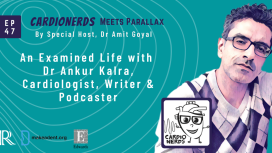
In this candid and spiritual conversation Amit and Ankur take a journey through former episodes of Parallax and Ankur’s writings to explore what it takes to strive for a deeper knowledge of ourselves; or, as Ankur puts it, dharma, the inherent order of reality.

Parallax’s guest this week is Dr Eric David Adler, Medical director of heart transplant and mechanical circulatory support at UC San Diego Health.

How did Dr Gragossian receive her diagnosis? How does she feel about her new reality? What drives her? What is her message to our listeners?

Just after 9/11, Heval, the 18-year-old Syrian Kurdish refugee found a job as a dishwasher. At this point, he was the sole provider of his family. The pressure that comes from being poor did not leave him for many years. Today, he is firm believer in giving back to underserved communities by spreading awareness within the medical community. As he says, well-meaning people of privilege are sometimes afraid to act. What we need is more people to bridge the gap and find ways to help each other.

What drives Dr Nishtha Sodhi? What were the formative moments of Dr Sodhi’s career? What are the new frontiers of cardiology?

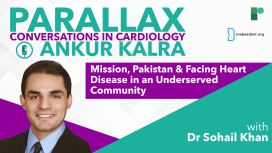
Dr Khan talks about education in the US and his decision to move back to Pakistan. Ankur asks Sohail about his new professional home: NICVD, a free clinic providing primary heartcare for Pakistanis. They discuss some of the innovations Dr Khan works on to improve patient care that utilise simple but effective interventions. We learn more about free screening clinics and about Dr Khan’s work on the largest ever study in Pakistan on association of Lpa and CV disease in South Asians.
